Futurelab
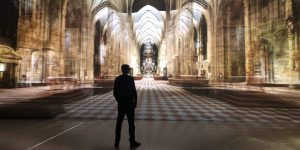
Immersify: The Translucent St. Stephen’s Cathedral – Artist Presentation
ScanLAB Projects (UK), RIEGL Laser Measurement Systems (AT), Dombauhütte St. Stephan zu Wien (AT), Ars Electronica Futurelab (AT)
The Translucent St. Stephen’s Cathedral invites Deep Space 8K visitors to an interactive 3D-journey through high-resolution 360° images of the Viennese St. Stephen’s Cathedral. The images, consisting of more than 21 billion laser points, together make up the multiple layers of transparency of the beautiful sacred building.
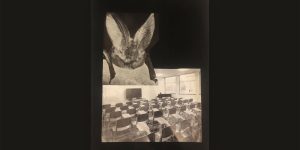
Creating a New Normal: Arts, Design, Humanities and Social Sciences 4 Emergency?
Eveline Wandl-Vogt, Nirmala Menon, Dario Rodrighiero, Elian Carsenat
Panel discussion: As this virus, and maybe further to come, affects the world and our way of living, we are aiming to explore pioneering research and action based art and design. During the time of social distancing and quarantining, it has become evident that even with the principles of science and technology that provide us with access to practical methods for securing our lives, humanities-based principles and skillsets have played a key role in enabling us to evolve. In light of this, we might want to rethink our approach to future living.
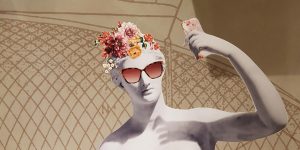
Exponential Mindset: The Skills of an Exponentialist
Niki Ernst, Eveline Wandl-Vogt
A 4-Sessions dive deep into the Exponential Mindset. An interaction series to consider the SDGs from an exponential growth strategies perspective.
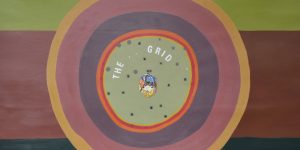
Community Creates Mobility: Participatory Speculative Critical Design beyond dream-making for the City.
Eveline Wandl-Vogt, Niki Ernst, Claudia Falkinger, Peter Zehetbauer, Wolfgang Preisinger, Elisabeth Füssl, Penesta Dika, Aleyda Rocha Sepulveda; lightning talk: Jeffrey Schnapp
Co-Envisioning Mobility Infrastructures - The challenges facing cities around the globe are complex and multidisciplinary by nature. Attempting to solve them in conventional linear ways is insufficient for addressing these manifold human-environment relationships that are at the heart of these challenges. Alternative approaches are necessary.
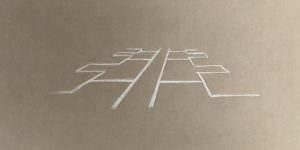
Affordances of spaces
Elena Cologni
Accelerating Knowledge for the SDGs: Life streamed session - The work developed from a two-year long investigation into ‘architectures of difference’, is based on a postcard in sculptor Barbara Hepworth’s collection (circa 1952), in a note she refers to this in terms of the space between people: it’s relational and social aspects. The piece also evolved from considering the punctuations found in our cities’ grounds, and how these contribute to developing a sense of attachment and belonging, which is at the basis of wellbeing (eg. Lived Dialectics, 2016, MuseumsQuartier, Vienna; Seeds of Attachment, 2016/18, New Hall Art Collection, Cambridge).
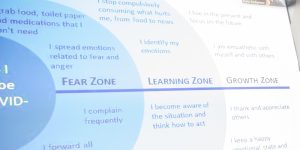
COVID19 Insights: Mapping Diversity and Community
Dario Rodrighiero, Elian Carsenat, Gabriel Carsenat, Eveline Wandl-Vogt
COVID19 is a fire accelerator. We were using the time of the lockdown to deepen our transnational collaboration and think on how we can apply our knowledge and skills to current real world problems related to the pandemics. This visualization based on the recently developed biocultural diversity index and lexical distances. This work is unpublished up to now and unique.
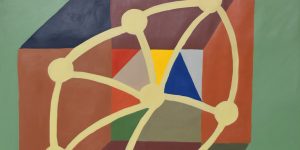
museum of knowledge science
Eveline Wandl-Vogt, Atiq Hashmi, Andreas Brandner, Louise Deininger
Virtual co-design session - Knowledge is at the heart of sustainable development. The achievement of the Sustainable Development Goals requires therefore effective knowledge management. However, knowledge needs to be understood in regional, societal, historic and cultural context. Art and culture are essential to the understanding of knowledge, specifically when knowledge - and its various aspects and processes - is reflected as a subject of art. Beyond reflecting knowledge, art is also a medium of knowledge, like articles or books.
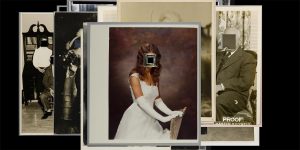
CURATORIAL A(I)GENTS
metaLAB (at) HARVARD
Eight experiments in the computational curation of collections - Curatorial A(i)gents consists in eight machine-learning-based experiments in and around museum collections and data sets developed by members and affiliates of metaLAB (at) Harvard, an idea foundry, knowledge-design lab, and production studio experimenting in the networked arts and humanities.
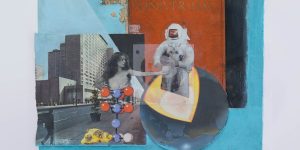
Algorithm Inventarium: methoda-thon
Matthew Battles, Max Haarich, Aleyda Rocha Sepulveda, Eveline Wandl-Vogt
Towards Inclusive, Sustainable Futures - The experimental "methodathon" is part of a series of “algorithm inventarium sprints” related to the project Algorithm Inventarium (AI+): diverse co-creation interventions combining action research approaches for accelerating the collaborative auditing of algorithms (e.g. by applying gamification techniques for data awareness, or auditing through interfaces). The aim of this session in connection with the ars electronica festival community is to identify, co-create and/or discuss specific methods, protocols and experiments for participatory research in the spirit of citizen science and community-based research in Vienna.
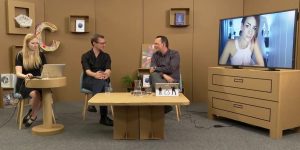
Ars Electronica Futurelab Creative Question Challenge: Art – Science – Innovation
Why should art and science be brought together when thinking about innovation?
The CQC brings together two speakers from different disciplines and backgrounds and a facilitator – called Catalyst – to create questions for the world to ponder within a 30-minute time limit.
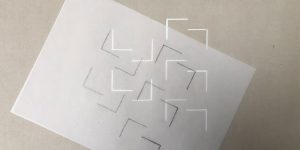
Algorithm Inventarium: The Greater Good Ethics Canvas
Eveline Wandl-Vogt, Henry Dobson, Max Haarich
Towards Responsible, Humane Technologies - In this interaction we are introducing the “Greater Good Ethics Canvas” to be used for the development of Humanity Centered Technology.
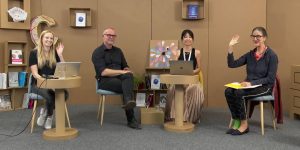
Ars Electronica Futurelab Creative Question Challenge: Art – Education
What is the Future of Art in Education?
The CQC brings together two speakers from different disciplines and backgrounds and a facilitator – called Catalyst – to create questions for the world to ponder within a 30-minute time limit.
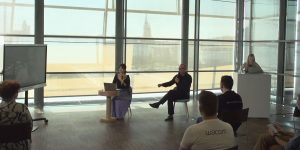
Ars Electronica Futurelab Creative Question Challenge: Future Ink
What is the future of creative expression?
The CQC brings together two speakers from different disciplines and backgrounds and a facilitator – called Catalyst – to create questions for the world to ponder within a 30-minute time limit.
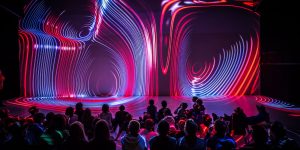
Immersify
PSNC – Poznan Supercomputing and Networking Center (PL), Spin Digital Video Technologies GmbH (DE), Marché du Film — Festival de Cannes (FR), Visualization Center C (SE), Ars Electronica Futurelab (AT)
The EU-funded project Immersify has been dedicated to current and future challenges that immersive media entail. The project researches technical possibilities with regard to video compression of immersive media and how immersive media content and tools can be designed interactively and promoted in the creative and media industry in Europe. Some of the content produced within the project will be showcased during this year's Ars Electronica Festival:

Immersify: The Translucent St. Stephen’s Cathedral
ScanLAB Projects (UK), RIEGL Laser Measurement Systems (AT), Dombauhütte St. Stephan zu Wien (AT), Ars Electronica Futurelab (AT)
The Translucent St. Stephen’s Cathedral invites Deep Space 8K visitors to an interactive 3D-journey through high-resolution 360° images of the Viennese St. Stephen’s Cathedral. The images, consisting of more than 21 billion laser points, together make up the multiple layers of transparency of the beautiful sacred building.
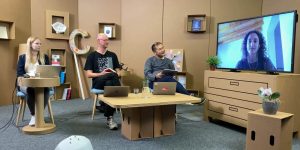
Ars Electronica Futurelab Creative Question Challenge: Art – Governance
How can we utilize the power of art for the city of future?
The CQC brings together two speakers from different disciplines and backgrounds and a facilitator – called Catalyst – to create questions for the world to ponder within a 30-minute time limit.

Oribokit: Gardening for Robots
Matthew Gardiner (AU)
Robotic Origami Workshop with Matthew Gardiner. ’Oribokit: Gardening for Robots‘ introduces a new artscience kit by Ars Electronica Futurelab researcher Matthew Gardiner. The kit allows you to make your own robotic garden at home. The assembled kit grafts onto a tree branch and is designed to minimise material usage and maximise modular recyclability for robotic origami applications. Kits include 1,2 or 3 oribotic blossoms featuring easy-to-fold laser-cut paper, servo motors, drive wires, and Arduino compatible STM32 microcontroller plus open-source firmware.
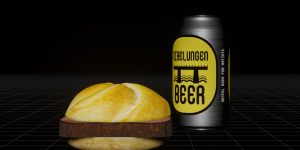
Beside the Nibelungen bridge / Neben der Nibelungenbrucke
Matthew Gardiner (AU)
Festival, late, Golden Nicas delivered. A mixed hoard spill into Linz; eclectic electric musicians chattering in nihongo, intro-and-extro-verted artists and friends not seen for an age for the tyranny of distance. Drawn involuntarily to places warmer and happier than Hans in Glück, to a lone Würstlstand in Linz. Perhaps beside the Linzer Nibelungenbrucke.
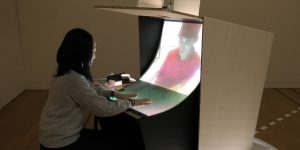
Collective physical experiences at remote locations
Kyoko Kunoh (JP/AT)
What telecommunication technology promotes sharing our social presence? With the aim to promote multi-modal telecommunication research in the future, this research carries out a series of the experiments at Ars Electronica Center to come up with various dimensions of the topic in the field featuring telepresence applications and interfaces.
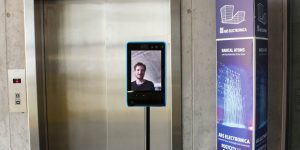
Tele-mobility
Peter Holzkorn (AT)
What parts of physical presence could telepresence replace in the future, and what new abilities could it add? What incentives will it need for its benefits to outweigh the perks of physical travel, and in which cases? In the Ars Electronica Futurelab, we want to foster discussion about this, and create prototypes with promising technologies.


